Integrated Circuit Chip Size
Market Size Snapshot
| Year | Value |
|---|---|
| 2023 | USD 487.2 Billion |
| 2032 | USD 1922.2 Billion |
| CAGR (2023-2032) | 12.7 % |
Note – Market size depicts the revenue generated over the financial year
In 2023, the value of the global integrated circuit market is expected to reach $ 487.2 billion, and by 2032, the value is expected to reach $ 1922.2 billion. It is expected that the compound annual growth rate (CAGR) will be 12.7% in the forecast period. This growth is mainly driven by the increasing demand for high-end smart devices and the rapid development of the Internet of Things (IoT). As the industry continues to embrace digitalization, the need for high-performance chips capable of implementing complex functions is becoming more and more important. Also, the development of artificial intelligence (AI), 5G and vehicle-mounted equipment is driving the market to develop in tandem. These innovations need more advanced integrated circuits, which in turn will stimulate the development of research and development. The main players in the market, such as Intel, Samsung, and TSMC, are constantly launching strategic plans, forming cooperative relations and expanding their market share. The recent investment by TSMC in advanced manufacturing technology is an example of this. To meet the needs of different industries, it is urgent for companies to constantly invent new things.
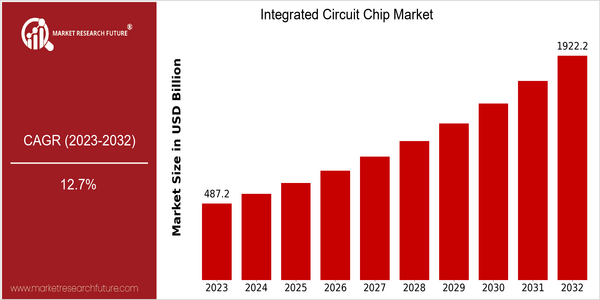
Regional Market Size
Regional Deep Dive
The IC chip market is growing at a fast pace in various regions, driven by advancements in technology, increasing demand for consumer electronics, and the rise of the Internet of Things. Each region has its own unique characteristics influenced by the economic conditions, the regulatory framework, and the technological development. North America is a leader in innovation and R&D spending, Europe is a regulatory and compliance leader, and Asia-Pacific is a manufacturing powerhouse. The Middle East and Africa are slowly emerging as new markets, while the Latin American market is growing due to its increasing digitalization efforts.
Europe
- The European Union has introduced the European Chips Act, which aims to increase the region's semiconductor production capacity and reduce dependency on non-EU suppliers, fostering a more resilient supply chain.
- Companies like ASML and STMicroelectronics are at the forefront of developing advanced manufacturing technologies, which are crucial for maintaining competitiveness in the global market.
Asia Pacific
- China's semiconductor industry is rapidly evolving, with significant investments from the government and private sector aimed at achieving self-sufficiency in chip production, impacting global supply chains.
- Taiwan Semiconductor Manufacturing Company (TSMC) continues to lead in advanced chip manufacturing technologies, with plans to expand its production capabilities to meet the growing demand from global tech companies.
Latin America
- Brazil is seeing a rise in local semiconductor startups, supported by government programs aimed at boosting technology and innovation in the region.
- Mexico is becoming a key player in the semiconductor supply chain, with many global companies establishing manufacturing plants to take advantage of its proximity to the U.S. market.
North America
- The U.S. government has launched initiatives like the CHIPS Act to bolster domestic semiconductor manufacturing, aiming to reduce reliance on foreign supply chains and enhance national security.
- Major companies such as Intel and NVIDIA are investing heavily in R&D and expanding their manufacturing facilities in the region, which is expected to drive innovation and create job opportunities.
Middle East And Africa
- Countries like Israel are becoming hubs for semiconductor innovation, with a focus on research and development, supported by government initiatives to attract foreign investment.
- The UAE is investing in technology parks and innovation centers to foster local semiconductor development, aiming to diversify its economy away from oil dependency.
Did You Know?
“Did you know that the semiconductor industry is one of the most research-intensive sectors, with companies investing over $30 billion annually in R&D to develop new technologies?” — Semiconductor Industry Association (SIA)
Segmental Market Size
The IC market is the most important segment of the semiconductor industry. It is currently growing at a rapid pace, driven by the growing demand for smart devices and the Internet of Things. The rapid development of consumer electronics, the automation of various industries and the ongoing transition to 5G technology, which requires more complex ICs, are all important driving forces for this. IC companies such as Intel and Qualcomm are in the forefront of the industry, developing ICs to meet these requirements. ICs are used in a variety of industries, including automobiles, telecommunications and consumer electronics. Among the most notable examples are the ICs developed by Tesla for its self-driving cars and the M1 chip developed by Apple, which has revolutionized the personal computer. The trend towards more sustainable and energy-efficient products is also driving the industry forward, as IC companies seek to develop more energy-efficient and high-performance ICs. Artificial intelligence and machine learning are influencing the development of ICs, enabling smarter production and more efficient use of ICs in various fields.
Future Outlook
The integrated circuit chip market is expected to grow significantly from 2023 to 2032, with a CAGR of 12.5 per cent. The growth will be driven by the rising demand for advanced semiconductors in various sectors, such as the consumer electronics, automobile, and telecommunications industries. The proliferation of smart technology and the Internet of Things will also lead to the increasing use of integrated circuits in everyday applications. By 2032, almost 75 per cent of all electrical devices will contain advanced ICs, up from about 50 per cent in 2023. Also driving the market are key developments such as the development of 5G networks and artificial intelligence. In addition, the shift towards smaller, more efficient chip designs, as well as the use of new materials and production methods, will enhance the performance and reduce the cost of integrated circuits, further driving the market. Also boosting the market will be government policies aimed at increasing domestic production and reducing reliance on foreign supply chains. These factors will lead to the rapid evolution of the integrated circuit chip market, with the market becoming increasingly competitive.
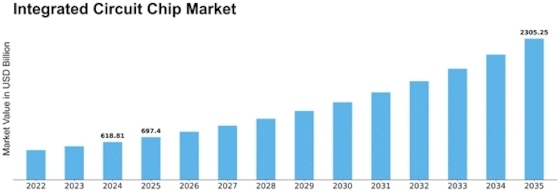

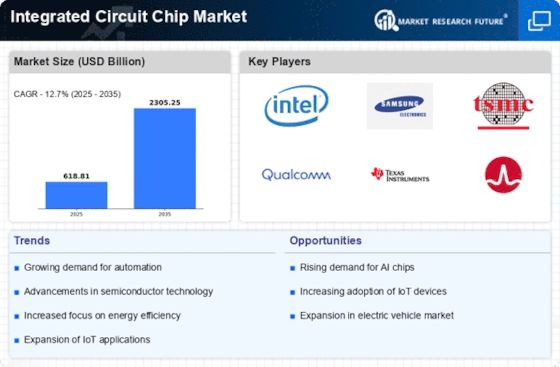
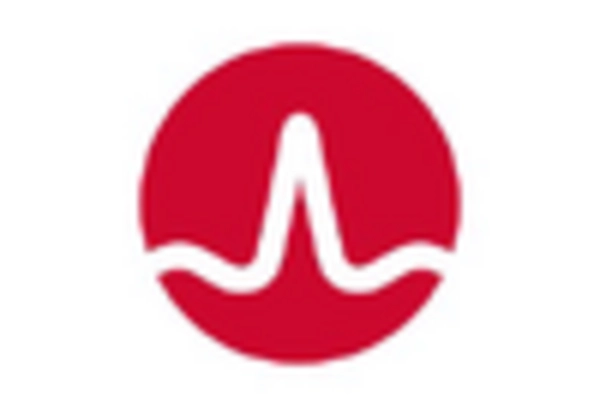
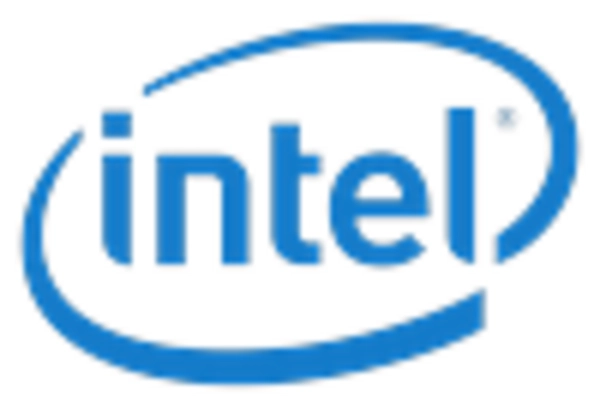
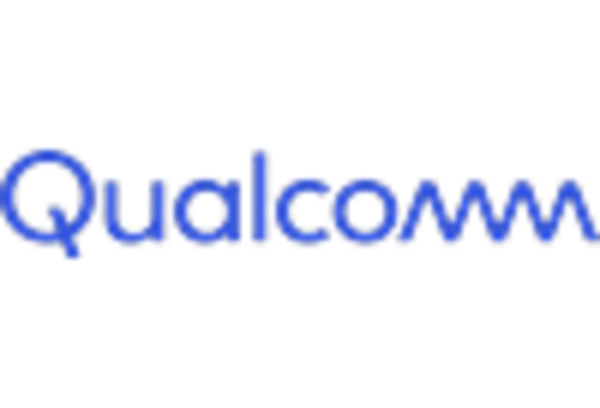

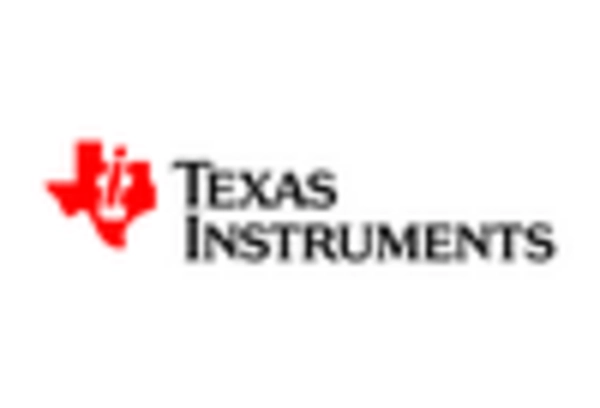









Leave a Comment